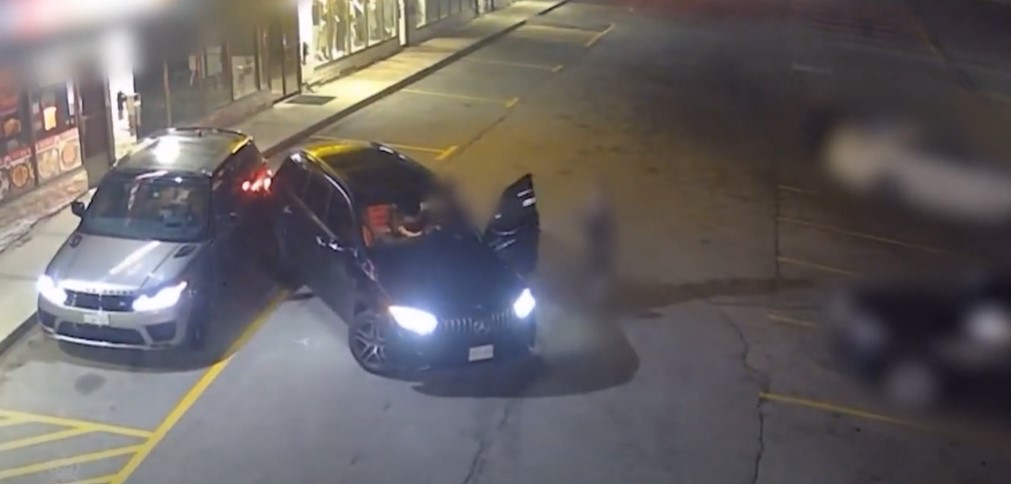Parks closed, tickets for partying as Kingston deals with returning students

Posted September 10, 2020 5:33 am.
Massive crowds and parties in an eastern Ontario university town have drawn criticisms from local residents and formal calls for greater co-operation to curb the spread of COVID-19.
Police and city officials in Kingston, Ont., said they’ve had to close a popular pier and beach due to crowding and issue a number of tickets since thousands of students flooded back into the city earlier this month. Local residents said they’ve also taken to the streets to break up parties in recent days.
Jeff Masuda, a Queen’s University professor, spent the early morning hours of Sunday on the long weekend trying to get dozens of Queen’s students — his neighbours — to stop partying and to abide by COVID-19 laws.
It didn’t work.
The maskless group shouted, drank and tossed beer bottles while hanging out outside and ignoring physical distancing guidelines, he said. Some yelled at the two police officers who were called to the area to deal with them, he said, while others took off to continue the night elsewhere.
Masuda walked around his neighbourhood near campus and said there were parties everywhere, including an abandoned hospital site where the same officers had shown up to deal with more revellers.
It didn’t seem like police were doing much, he said.
“There were hundreds of students mixing together across the university district,” he said.
“So now we are left in a position to wait and hope for the best. If COVID came, it’s already spread.”
The region has gone largely unscathed by COVID-19. There is currently one active case of the disease and 112 cases in total since the novel coronavirus made it to Canada. No one has died from the disease.
Kingston has a large student population even during the pandemic. While Queen’s University has limited in-person learning to about 6,600 students, or a quarter of its total population, many students learning online have returned to the city.
That has left Masuda, a professor of kinesiology and health, frustrated with the city’s plan to deal with partying students.
“Whatever plan was put in place, it failed,” Masuda said.
“It was a massive breach of COVID guidelines in the community.”
Mayor Bryan Paterson said the city, the local public health agency, police and Queen’s are doing their best.
Hundreds of Queen’s students flocked to a nearby beach and Gord Downie Pier, which led the city to issue an order to enforce physical distancing through threat of fines, Paterson said.
But police told the mayor there were simply too many people to enforce distancing, so the mayor closed the area through an emergency order on the weekend.
The number of visitors to the area had significantly increased last week after students returned to the city.
“Any other year, that would be OK, we designed and built that area for crowds of people to enjoy, but during a pandemic it’s too much,” Paterson said.
Last month, the mayor vowed to crack down on the massive parties Queen’s students have become known for.
City council approved the use of “administrative monetary penalties” that include fines for shouting, amplified sound coming from speakers and parties.
Bylaw and police officers have been out using the new laws, largely in the university district, officials said.
Since Aug. 28, the city said it has issued 45 such penalties for amplified sound, two for yelling or shouting and one nuisance party charge.
Kingston police said they laid five such charges over the long weekend.
“We’re trying to be proactive to make sure we can curb anything before it lights up here in Kingston, that’s the last thing we want,” Const. Ash Gutheinz said of cases of COVID-19.
Queen’s, for its part, said it’s been sharing all public health protocols with students and was “deeply concerned” to hear of what Masuda witnessed.
“Queen’s takes the safety of our community very seriously,” the university said in a statement. “We want to assure the community that we will continue to impress upon our students the importance of adhering to public health guidelines during these challenging times.”
Masuda said the city and the school should have engaged residents to help.
“We’re willing to put in more effort to do our part as neighbours to help the students help themselves,” he said.
The mayor said he shares the frustration of residents such as Masuda.
“This is a big challenge, I understand that, and if community members are able to help or to reach out to student neighbours, I think that’s actually a great idea,” Paterson said.
Masuda said he has since spoken to his student neighbours.
“They have been contrite and apologetic,” he said.
“With hindsight, I think many of them regret what has happened.”










